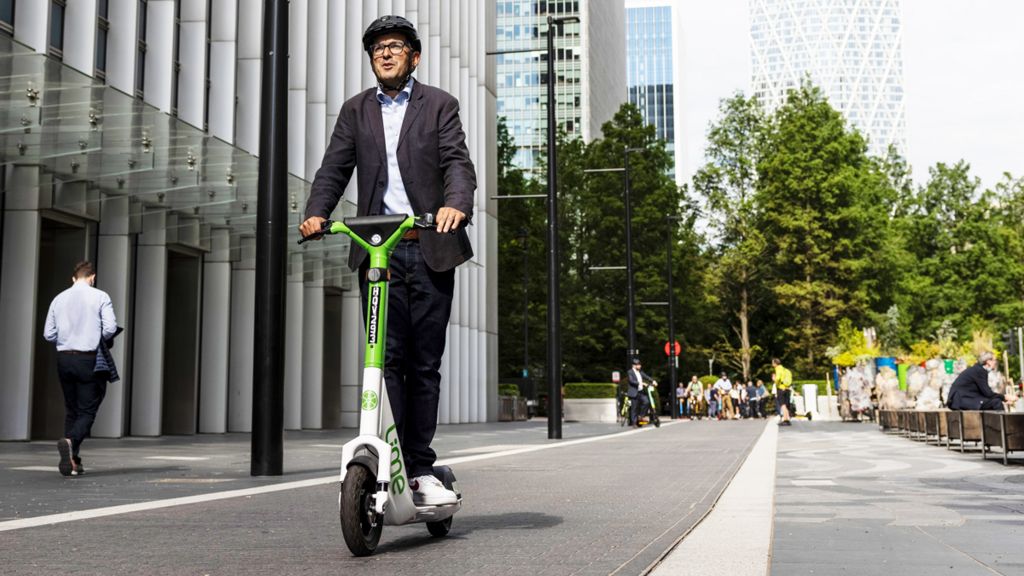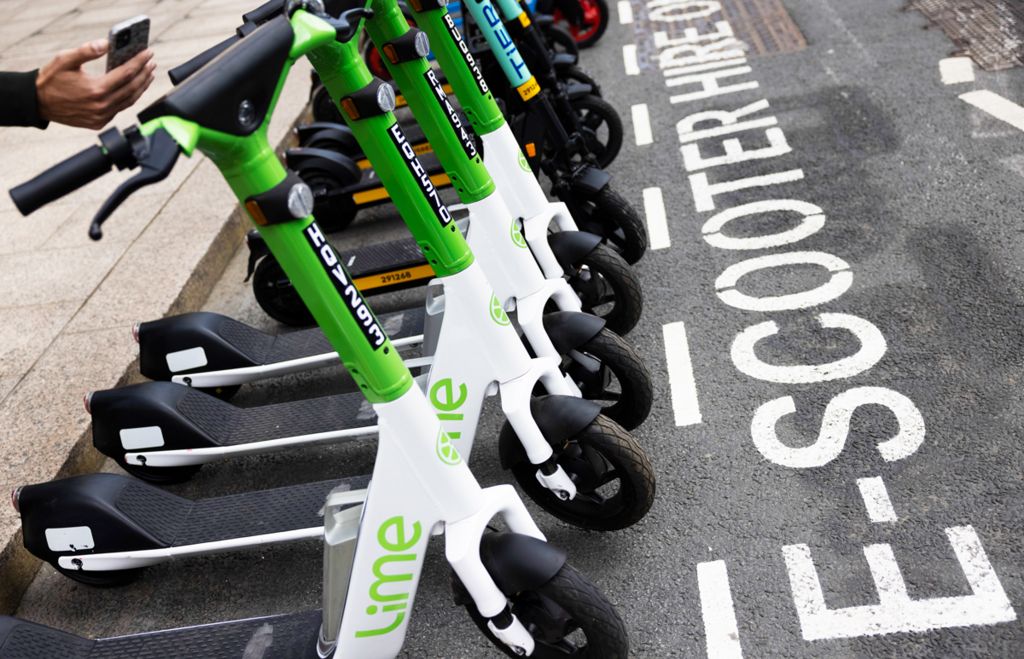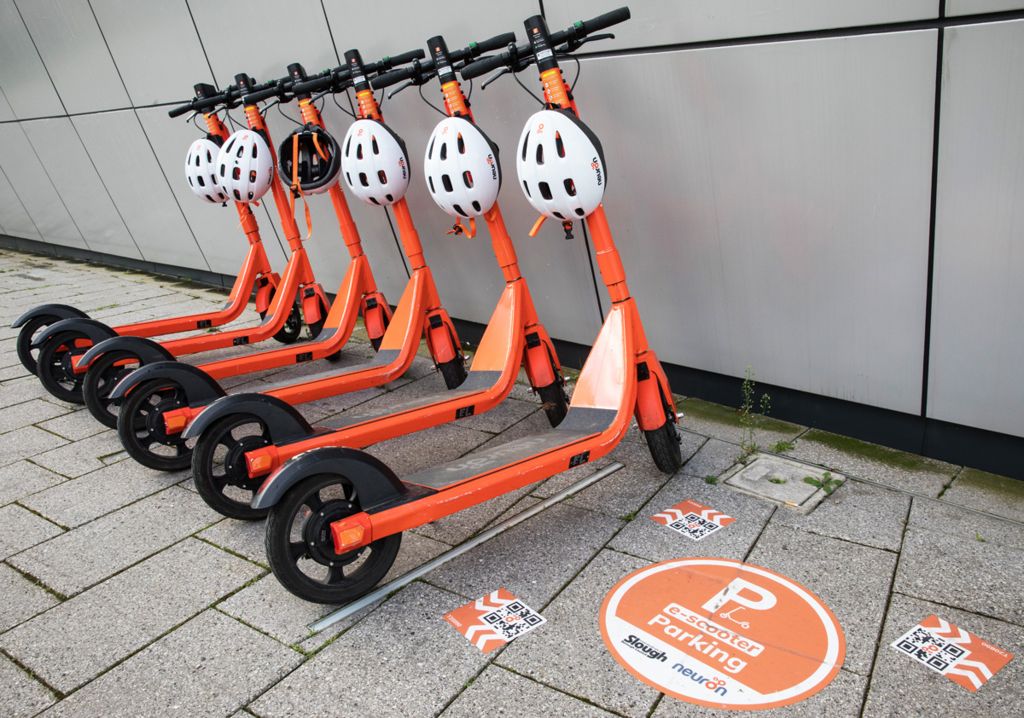When and where can I ride an e-scooter legally?on June 7, 2021 at 5:09 pm
London is the latest UK city to trial e-scooters – which the government hopes will be a more environmentally-friendly way to travel.

image copyrightGetty Images
London is the latest UK city to trial e-scooters – which the government hopes will be a more environmentally-friendly way to travel.
More than 30 areas – including Newcastle, Bristol and Bournemouth – are already operating rental schemes.
The Covid pandemic brought the trials forward, because they offer people a way of getting around at a social distance.
E-scooters are available to rent in four boroughs to start with:
- Ealing
- Hammersmith and Fulham
- Kensington and Chelsea
- Richmond upon Thames
Scooters can also be hired in Canary Wharf and ridden through the borough of Tower Hamlets. The City of London is due to join in July.
The most powerful privately-owned e-scooters can reach up to 68 mph (110 km/h) but rental e-scooters in the UK have maximum limits of 15.5mph (24.9km/h)
The London trials use technology to create “go-slow areas”, where the top speed is reduced to 8mph (13km/h) for safety.
Hire charges vary, but it typically costs £1 to unlock an e-scooter (using a smartphone app) plus a fee of 14p-20p per minute.
Rental e-scooters in London have an audible warning system, and front and rear lights.
The only e-scooters that can be used on public roads are those rented as part of government-backed trials.
If you own an e-scooter, you can only use it on private land and not on public roads, cycle lanes or pavements.
Currently, there isn’t a specific law for e-scooters so they are recognised as “powered transporters” – falling under the same laws and regulations as motor vehicles. They are subject to all the same legal requirements – MOT, tax, licensing and specific construction.
And so, because e-scooters don’t always have visible rear red lights, number plates or signalling ability, that’s why they can’t be used legally on roads.

image copyrightGetty Images
Yes. To use an e-scooter from an official trial, you need to have category Q entitlement on your driving licence.
Full/provisional UK driving licences with categories AM, A or B include category Q permissions.
If you have a provisional licence, you don’t need L plates when using an e-scooter.
If you have an overseas provisional licence, learner permit or equivalent – you can’t use an e-scooter.
No. In London you have to complete an online course first.
Cycle helmets are recommended, but not legally required.
The Met Police say they will issue fines of £50 for riding on the footway – and £100 and six driving licence penalty points for using a mobile phone or riding through a red light.
The Transport Committee of MPs has called for e-scooters to be legalised on roads, but not pavements.
It says allowing wider use of e-scooters would:
- Help people from poorer backgrounds avoid the cost of getting a driving licence
- Often result in faster journey times than cars
- Allow them to be used for deliveries in place of mopeds
The London Cycle Campaign (LCC) says e-scooters offer a “cleaner, low carbon alternative” for those who can’t or don’t want to cycle.
Unsurprisingly, manufacturers say e-scooters can improve mental health and balance. But the London Assembly found there could be a negative health benefits if e-scooters replaced walking or cycling.

image copyrightGetty Images
The exact number of crashes involving e-scooters is said to be under-reported however Ch Supt Simon Ovens from the Met Police said the numbers were increasing “sharply”.
In July 2019, TV presenter and YouTuber Emily Hartridge, 35, died when the e-scooter she was riding crashed due to an underinflated tyre. And Julian Thomas, 55, died when his e-scooter hit a parked car in September 2020.

image copyrightEmpics
There’s concern that e-scooters are being used by criminal gangs.
E-scooters were involved 574 recorded crimes in London, such as robberies or assaults, between 1 July 2020 and 30 April 2021 – say the Met.
London Mayor Sadiq Khan says incidents involving e-scooters are “underreported”, but work is being done with the police to ensure all incidents are addressed.
Caroline Pidgeon, a Lib Dem London Assembly member, is worried the “speed and nimbleness” of e-scooters now offer an attractive option for some criminals.
The needs of pedestrians and disabled people should “never be sacrificed”, she says, and it is “vital” e-scooters are not ridden irresponsibly or left cluttered on pavements.
The BBC is not responsible for the content of external sites.
